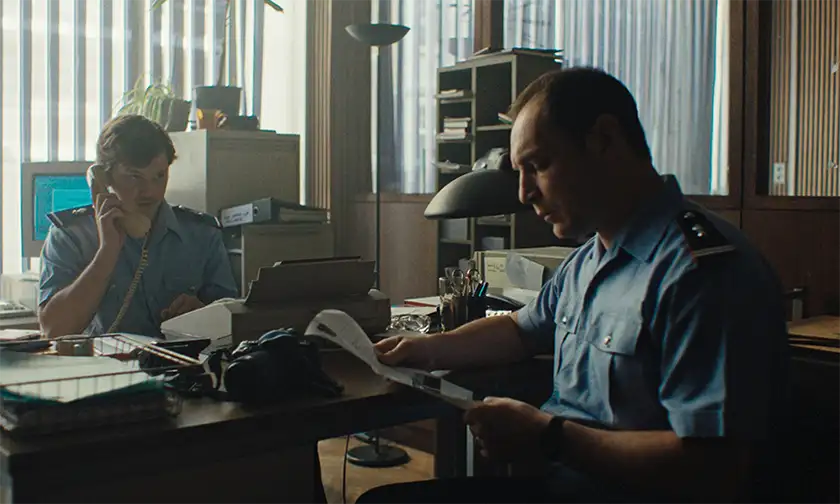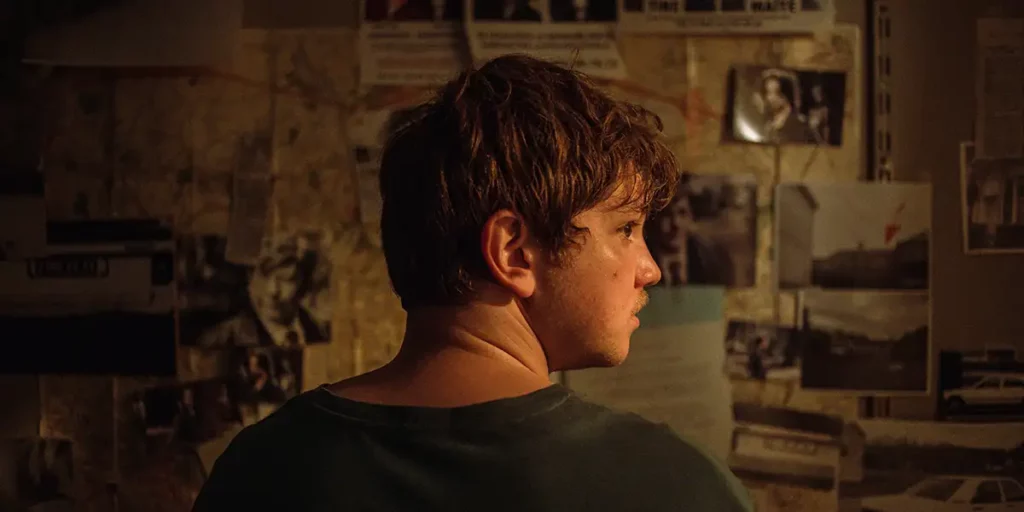Fabrice du Weltz’s Maldoror shines a light on a notorious Belgian true crime case, but the introduction of fictional elements brings vigilantism into the picture.
Trigger Warning: The first two paragraphs of this review of the film Maldoror contain a description of a true crime case involving paedophilia and abuse, which may trigger some readers.
Director: Fabrice du Welz
Genre: Thriller
Run Time: 155′
Venice World Premiere: September 3, 2024
Release Date: TBA
On August 15, 1996, a middle-aged man named Marc Dutroux led the Belgian police to a hidden cell in his basement where he had been keeping teenagers Sabine Dardenne and Laetitia Delhez, the former of whom for over eleven weeks, after abducting them with the help of various accomplices, including his own wife. A few days later, two eight years old girls were found buried at another one of his properties.
Though it’s unclear whether Dutroux was part of a wider paedophile ring – the man himself insists he was, but no evidence was ever found – the case shocked the entire country, leading to a life sentence in prison for Dutroux for kidnapping and raping at least five girls, and murdering some of them. But what sparked even more outrage is that the Belgian police – which, at the time, consisted of Gendarmerie, Local and Judicial Police: three separate departments that didn’t communicate with one another – had been surveilling Dutroux for months. The Dutroux case called into question issues of police corruption and the efficacy of the whole judicial system, and even led to a reform. In Maldoror, writer-director Fabrice du Welz (Calvaire) and co-writer Domenico La Porta explore themes of justice and obsession by focusing on the titular surveillance operation.
On paper, Maldoror has all the elements to be a compelling watch for true crime junkies, and a thought-provoking one for everyone else, as it promises to shine a light on a case that not many are familiar with outside of Belgium while dealing with universal, timely issues. At first, the film absolutely succeeds at that, drawing us into the investigation with the highly relatable fictional character of Paul Chartier (Anthony Bajon, of A Radiant Girl), a young “gendarme” with a mysterious past and a tendency to disobey orders. Our young policeman is determined to get to the bottom of things, and catching the abductor becomes an obsession that takes over every aspect of his life, even his own wife (Alba Gaïa Bellugi) and newborn. But when the surveillance operation turns into something else entirely, Chartier begins to lose control.

Maldoror is “based partly and freely on real events,” and this is both what sets it apart from other movies and its biggest weakness. Fictional retellings of true crime stories usually follow the same structure, letting us discover clues alongside the detectives, and keeping us hooked with unexpected twists that slowly uncover the truth. Here, we don’t have that, as finding the culprit isn’t du Welz’s main aim: just like the police itself, we already have our suspicions; in fact, ours is more of a certainty, as we are even given access to the cellar before the gendarmerie finds it. In this, Maldoror subverts our expectations, showing us an investigation that goes beyond a suspect and their victims but that also extends to the failures of the system.
On top of this, though, the decision to add an entirely fictional character in Paul Chartier enables the movie to radically change the true story at its core, to the point that this tale about corrupt policemen and the failure to catch Dutroux becomes a vigilante kind of narrative. Wishing to show how frustrated Chartier is with the police, particularly when he has gotten so close to catching the culprit, the movie has him make some questionable choices that partly deprive him of what made him so compelling as a character in the first place. These storytelling decisions, on top of some tonal issues, have Chartier’s frustration with the justice system come across as abrupt mood swings that sadly make him feel quite one-dimensional, and send the wrong message in the attempt to make things come full circle in the end.
Maldoror didn’t need to be as long as it is, and could have benefited from reducing some of its most puzzling narrative and stylistic choices and focusing more on the tale at hand. More characterization could have made the story more gripping and really allowed the entire cast to shine, and more restraint on the fictional elements of the film would have resulted in a more believable, affecting watch. As it is, the movie is worth the watch for its subject matter and a gripping first half, but it will probably leave you wanting more.
Maldoror had its World Premiere at the Venice Film Festival on September 3, 2024. Read our review of Happy Holidays!

